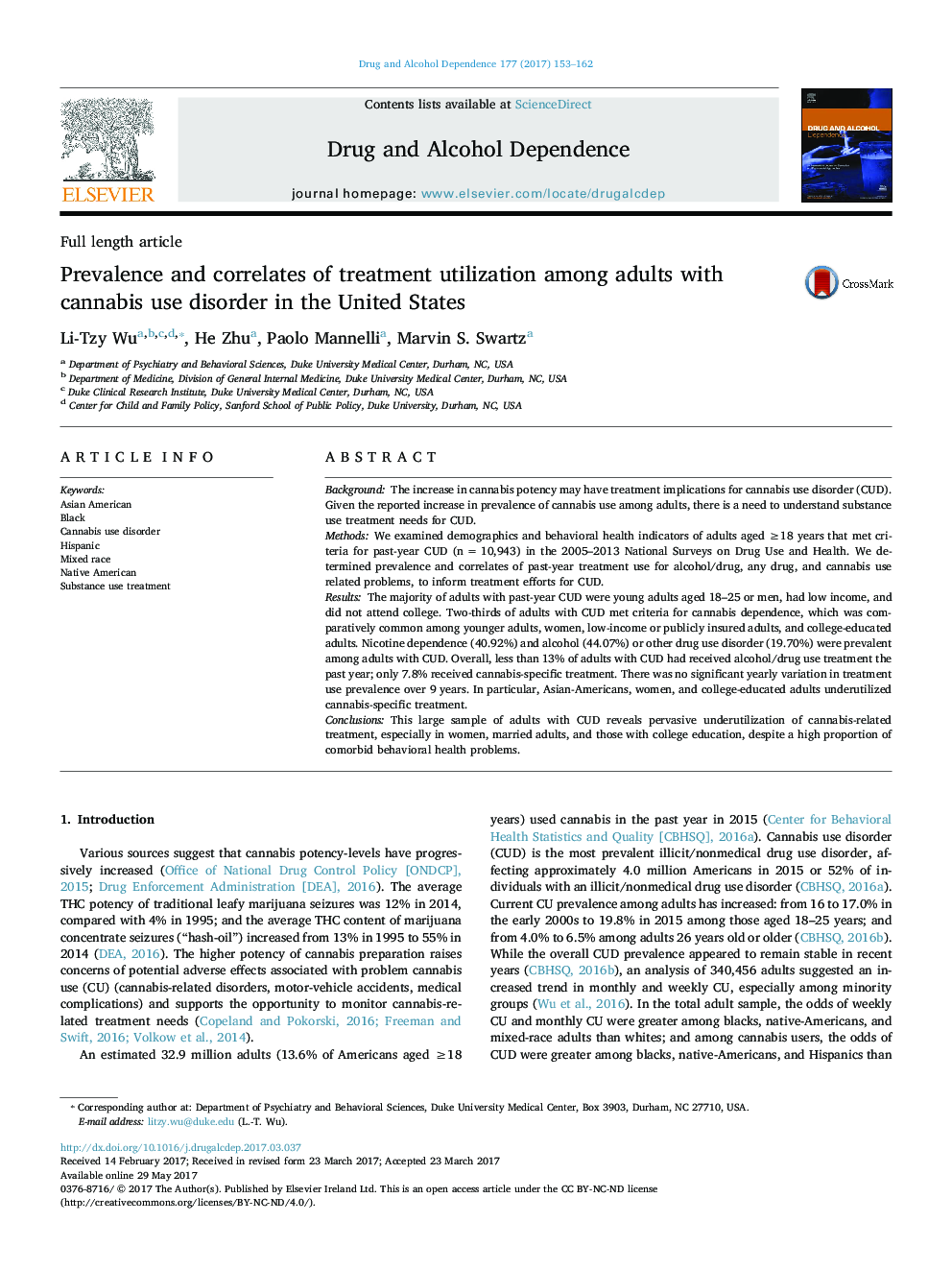| کد مقاله | کد نشریه | سال انتشار | مقاله انگلیسی | نسخه تمام متن |
|---|---|---|---|---|
| 5120036 | 1486114 | 2017 | 10 صفحه PDF | دانلود رایگان |
- Many (69%) adults with cannabis use disorder (CUD) had another substance use disorder.
- About 88% of adults with CUD had not received alcohol/drug use treatment services.
- Only about 8% adults with CUD used cannabis-specific treatment in the past year.
- Asian-Americans, women, and married or college-educated adults underused treatment.
BackgroundThe increase in cannabis potency may have treatment implications for cannabis use disorder (CUD). Given the reported increase in prevalence of cannabis use among adults, there is a need to understand substance use treatment needs for CUD.MethodsWe examined demographics and behavioral health indicators of adults aged â¥18 years that met criteria for past-year CUD (n = 10,943) in the 2005-2013 National Surveys on Drug Use and Health. We determined prevalence and correlates of past-year treatment use for alcohol/drug, any drug, and cannabis use related problems, to inform treatment efforts for CUD.ResultsThe majority of adults with past-year CUD were young adults aged 18-25 or men, had low income, and did not attend college. Two-thirds of adults with CUD met criteria for cannabis dependence, which was comparatively common among younger adults, women, low-income or publicly insured adults, and college-educated adults. Nicotine dependence (40.92%) and alcohol (44.07%) or other drug use disorder (19.70%) were prevalent among adults with CUD. Overall, less than 13% of adults with CUD had received alcohol/drug use treatment the past year; only 7.8% received cannabis-specific treatment. There was no significant yearly variation in treatment use prevalence over 9 years. In particular, Asian-Americans, women, and college-educated adults underutilized cannabis-specific treatment.ConclusionsThis large sample of adults with CUD reveals pervasive underutilization of cannabis-related treatment, especially in women, married adults, and those with college education, despite a high proportion of comorbid behavioral health problems.
Journal: Drug and Alcohol Dependence - Volume 177, 1 August 2017, Pages 153-162
